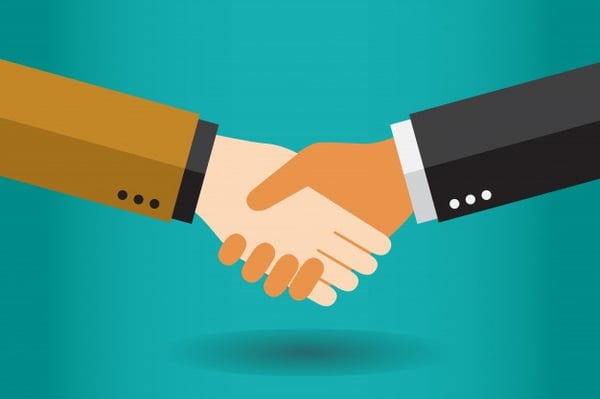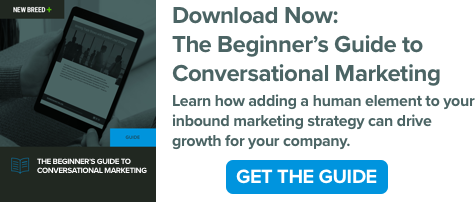
A few weeks ago, I noticed a coaster on my co-worker’s desk. It said "MQL, SQL, WTF," and as a lifecycle marketer myself, I thought it was pretty clever. I asked him where he got it, and he said that he'd received it from a revenue operations software company called FunnelCake during a Dreamforce event in 2016.
I'm not a FunnelCake customer or prospect. I had never even heard of them before this conversation, let alone expressed any interest in purchasing their software — but I loved the coaster, so I tweeted the company and asked how I could get one. About a week later, I came into the office to find that FunnelCake had sent me my very own "MQL, SQL, WTF" coaster.
I was delighted. Even though I'd displayed no interest or purchase intent for a funnel-gap identification software like FunnelCake, this company still took the time and resources to make my day and establish an authentic relationship — but why would a company do this for someone who isn't a potential customer or a final decision-maker for software purchases at their organization?
This small act of kindness by FunnelCake is a classic example of relationship marketing. Although I'm not actively looking for a funnel gap software, nor am I likely to anytime soon, FunnelCake's thoughtful gift served to raise awareness for their brand and give me the incentive to come back to them if the need ever arose.
Did they generate a customer? No. But you'd better believe that if I ever need to evaluate a funnel gap software for New Breed in the future, FunnelCake will be the first company that comes to mind. That's the real value of relationship building: In a world where marketing is increasingly data-driven and automated, taking the time to establish a genuine human connection is what truly sets your brand apart.
The lesson to be learned here is: Marketing is relationship building.
Throughout the entire customer flywheel, from first touch to closed-won to customer retention and upselling, marketers should always strive to build rapport and build relationships with people, regardless of whether or not someone is a paying customer. This helps companies:
- Build brand equity and awareness.
- Increase word-of-mouth referrals.
- Increase the likelihood of that person buying in the future.
- Reduce the likelihood of customer churn.
Maybe you won't see an immediate return, but the value of relationship marketing is clear. Being kind, genuine and friendly will only serve to enhance your brand in the end. So how do marketers go about relationship building effectively?
Relationship Marketing: Genuine, Personal, Thoughtful
Obviously, if someone reaches out to your company directly, you should work to add value and build rapport no matter who they are — but you don't always have to wait for someone to reach out to you first if you know they're a good fit for your company. Using a social monitoring tool like the one HubSpot offers, you can track keywords, hashtags, comments and other engagement markers relevant to your brand. From there, you can qualify users and spark that relationship on your own. Like any inbound effort, the key is to provide value before you ask for it.
Remember, this value doesn't always have to take the form of swag, as in FunnelCake's case. Establishing rapport can be as simple as responding to a tweet or commenting on a LinkedIn post, as long as it's genuine, personalized and thoughtful. Contests, loyalty programs, giveaways and simple conversations with industry peers are all great ways to build relationships and add that human touch that is too-often overlooked in marketing.
The Takeaway
The bottom line is: A person doesn't need to be a customer to be an evangelist of your brand. Just because someone isn't currently evaluating your product doesn't mean it's not worth it to build rapport with them. Never give anyone the cold shoulder, because you never know where a little good will could take you. In the B2B and SaaS industry especially, a genuine act of kindness can take you farther than any sales pitch or marketing content ever could.





